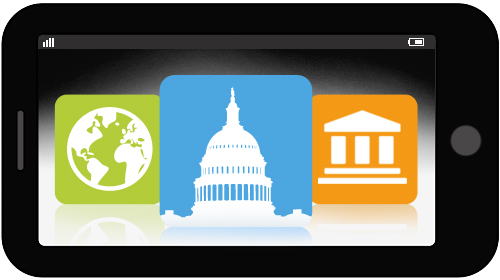
For the second time in just one month, late last night the House of Representatives overwhelmingly passed legislation – this time as an amendment to an appropriations bill that will now move to the Senate – aimed at reining in NSA abuse.
In a chamber that probably couldn’t pass legislation declaring the sky , the vote is a giant, flashing neon sign with one clear and unmistakable message: We want meaningful surveillance reform, and we want it right now.
So, how did this happen?
You might remember that just last month the House passed the USA Freedom Act, aimed at stopping the NSA from conducting bulk surveillance of Americans’ communications. Unfortunately, in the 11th hour before the Act passed the House, a series of provisions were stripped through backroom negotiations. The resulting legislation was, at best, , falling far short of what the American people deserved.
But, around midnight last night, Representatives Jim Sensenbrenner (R-Wis.) and John Conyers (D-Mich.) – the lead Republican and Democrat of the House Judiciary Committee – proposed an amendment to the annual Defense Appropriations Bill for FY 15, which would limit the types of surveillance activities our tax dollars can be used for. The amendment included much-needed reforms that were similar to those that had been removed from the final version of the House USA Freedom Act. It passed by an overwhelming majority (293-123).
The amendment would prevent funds from being used to search through U.S. citizens’ emails and phone calls under Section 702 of the Foreign Intelligence Surveillance Act (FISA) unless the government has reason to think they are involved in wrongdoing. While Section 702 was originally designed to target people abroad, not U.S. citizens, it has been used and abused as an end-run around our privacy laws. We now know that millions of Americans’ communications are – in the government’s words– being “incidentally” collected under 702 simply because they talk to someone abroad. The legislation would prevent the government from using funds to mine these “incidental” communications.
In addition, the amendment would stop the government from using funds to request or force tech companies or developers to build “back doors” into their products, which the government could then walk right through whenever they wanted to conduct surveillance.
The vote reaffirms that the version of the USA Freedom Act passed by the House is simply not enough. And it sends a strong message to the Senate: If even the House can agree on the need for surveillance reform – twice – then it’s clearly high time to change the law.
Learn more about government surveillance and other civil liberty issues: Sign up for breaking news alerts, , and .

